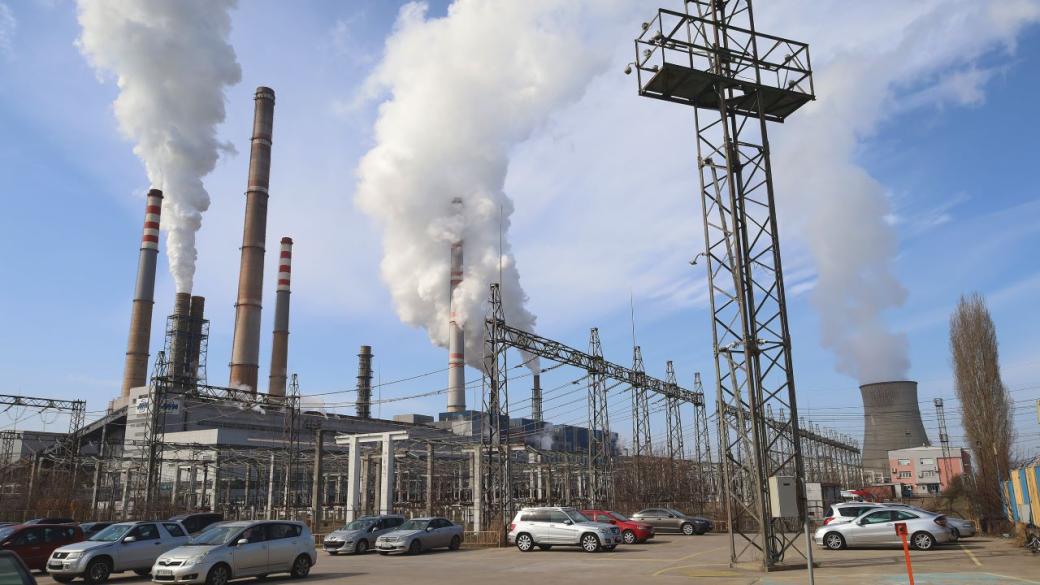The just transition in Stara Zagora: 171 million euros for energy renovation, retraining and new developments
Stara Zagora Province, as a beneficiary, has been expanded with 10 more adjacent municipalities from 3 other provinces

© ECONOMIC.BG / Krasimir Svrakov
The first millions of euros from the Just Transition Fund destined for the most affected coal region in Bulgaria - Stara Zagora, will arrive very soon. At a press briefing, the mayor of the city, Zhivko Todorov, gave more details about the funding programs specifying that the Stara Zagora region was expanded with 10 more adjacent municipalities from 3 neighbouring provinces. These include Nova Zagora, Sliven, Tundzha, Elhovo, Yambol, Haskovo, Dimitrovgrad, and others. Thus, there are a total of 21 municipalities that can benefit from the European funds.
Start of transition
The first program that will open by the end of June is the Energy Efficiency Program, also known as the 'energy renovation of buildings' program, with 60 million euros planned for the Stara Zagora Province and its adjacent municipalities. Its beneficiaries will receive 100% free financing. An additional criterion in the program, for which there will be bonus points, is whether workers directly affected by the energy transition live in the building.
That way, people who work in the mining and energy sector can apply to have their apartment buildings renovated with support from the European program.
More specifically: a maximum of 15 points will be given if there are more than 5% of residents in the building who work in the sector. If they are below 5%, then 10 points will be granted. It was very important for us to set this criterion," commented Todorov.
Municipal and state institutions also have the right to participate in the program.
The initiative is critical to reducing energy consumption and addressing energy poverty in the three coal regions of Bulgaria.
The Governor of Stara Zagora Iva Radeva added that the other criteria for approving the buildings remain unchanged.
The other program, which is also expected to launch in the third quarter of this year, is that of training and retraining of workers in the coal sector. For Stara Zagora, it has a budget of 36.5 million euros, and its beneficiaries are only the thermal power plants: the state-owned "Maritsa-Iztok 2", as well as the private "AES Maritsa-Iztok 1", "ContourGlobal Maritsa-Iztok 3", TPP "Brickel" and TPP "Sliven", as well as the "Mini Maritsa-Iztok" coal mines. The goal of this program is to retain the full staff of these companies as long as possible.
The training and retraining will be carried out by the trade unions (KNSB, KT "Podkrepa" and employers' organizations (KRIB, BCCI, and others).
"If there is a reduction in the production output at some point, the enterprises will maintain employment, under a system where half of the day the people will work, and the other half they will undergo some kind of training," the provincial governor pointed out.
Towards the end of this year, the procedure for the creation of industrial parks and zones is expected to launch - with 70 million euros planned for the region.
The City of Stara Zagora will apply for two industrial zones: the first is "Golesh", which Todorov explained that the municipality has been trying to develop for years, but it still has no available infrastructure.
[In that zone] there are large municipal lots, and there are also private developments that will also be able to benefit," said the mayor.
The other zone is in the area of the former Nitrogen Fertilizer Plant (ATZ). "We have applied for "Elenino" to the Ministry of Innovation and expect funding from there. 4-5 industrial zones can be built, along with Zagore, which is almost full. Only in this way can we offer an alternative and attract investors", said Zhivko Todorov.
The municipalities of Galabovo and Radnevo intend to create a joint industrial zone and will probably benefit from these funds. The municipality of Chirpan is also planning its own industrial zone, explained Iva Radeva.
Subcommittee
Stara Zagora has the largest subcommittee, which consists of 25 people at this stage, but the goal is not to make it too large so it can work constructively. Among these 25 members are the mayors of 9 municipalities, representatives of 4 employers' organizations, trade unions, non-governmental organizations, Trakia University of Stara Zagora and other state institutions. The composition of the sub-committee is public, it can be seen on the website of the Bulgarian Ministry of Internal Affairs and Communications.
The first meeting of the Stara Zagora Subcommittee was held online, the next one will be held in person and will be announced in advance on the website of the Stara Zagora Provincial Administration, as well as on the website of the Bulgarian Ministry of Regional Planning and Development.
Co-financed by the European Union. The views and opinions expressed, however, are entirely those of their author(s) and do not necessarily reflect the views and opinions of the European Union or the European Commission. Neither the European Union nor the European Commission is responsible for them.

Translated by Tzvetozar Vincent Iolov

 Aleksandra Sotirova-Delcheva
Aleksandra Sotirova-Delcheva